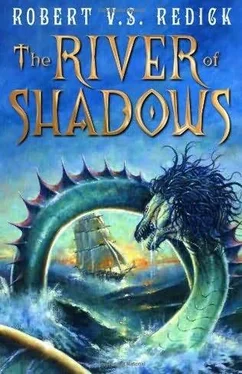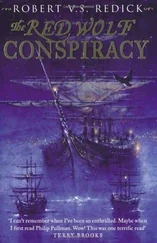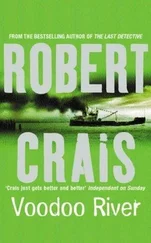Robert Redick - The River of Shadows
Здесь есть возможность читать онлайн «Robert Redick - The River of Shadows» весь текст электронной книги совершенно бесплатно (целиком полную версию без сокращений). В некоторых случаях можно слушать аудио, скачать через торрент в формате fb2 и присутствует краткое содержание. Жанр: Фэнтези, на английском языке. Описание произведения, (предисловие) а так же отзывы посетителей доступны на портале библиотеки ЛибКат.
- Название:The River of Shadows
- Автор:
- Жанр:
- Год:неизвестен
- ISBN:нет данных
- Рейтинг книги:4 / 5. Голосов: 1
-
Избранное:Добавить в избранное
- Отзывы:
-
Ваша оценка:
- 80
- 1
- 2
- 3
- 4
- 5
The River of Shadows: краткое содержание, описание и аннотация
Предлагаем к чтению аннотацию, описание, краткое содержание или предисловие (зависит от того, что написал сам автор книги «The River of Shadows»). Если вы не нашли необходимую информацию о книге — напишите в комментариях, мы постараемся отыскать её.
The River of Shadows — читать онлайн бесплатно полную книгу (весь текст) целиком
Ниже представлен текст книги, разбитый по страницам. Система сохранения места последней прочитанной страницы, позволяет с удобством читать онлайн бесплатно книгу «The River of Shadows», без необходимости каждый раз заново искать на чём Вы остановились. Поставьте закладку, и сможете в любой момент перейти на страницу, на которой закончили чтение.
Интервал:
Закладка:
The humans were bunched around him, keeping pace. “How do we know he hasn’t mastered the Stone already, Sire?” asked Neeps.
“By the fact that we yet breathe, Mr. Undrabust,” said the prince.
He reached the end of the corridor. Without stopping, he leaned into a pair of big double-doors, spreading them wide, and charged into the main entrance hall of the Conservatory. His personal servants and guards were waiting there, along with most of the birdwatchers, who seemed caught between relief and disappointment at the sight of the departing humans. One tried to hand a sheet of parchment to Mr. Druffle.
“A simple questionnaire, it will take just a minute-”
“It’ll take less than that,” snarled Druffle, crushing the sheet in his fist.
They passed through the outer doors and found themselves in dazzling sunshine. They were on the portico, facing the marble stairs and wide gardens that fronted the Conservatory. Thasha gave a cry of joy: Jorl and Suzyt were waiting there, untethered. They leaped on her, ecstatic and squealing. “They are clever dogs,” said the prince. “You have trained them almost to dlomic standards, and that is high praise.”
“How did you get them to obey you?” said Thasha, hugging both mastiffs at once.
“They did nothing of the kind,” laughed the prince. “But they listened to Felthrup, right enough. And he convinced them I was a friend. Hurry, now, let’s be gone from here.”
“Yes!” shouted Dr. Rain, shuffling quickly down the stairs. “Out, out, out!”
“The doctor disapproves of our facility,” said Olik, “but in fact you were lucky to have been locked up here. There are not many flat-roofed buildings in the Middle City, although there are plenty of flat heads. One or the other kept your would-be executioners from seeking you in the most obvious of hiding places.”
“How did you get rid of them?” asked Uskins, who was having a lucid moment.
“I left that to Vadu,” said the prince. “He was rather startled to find me alive, and rather terrified to imagine how many people might already have learned what he put me through last night. Suffice it to say that our relations are off to a fresh start.”
Beyond the gardens that fronted the Conservatory waited three fine, gilded coaches. Their teams were not made up of horses but dogs: twelve massive, square-shouldered dogs apiece, waiting silently but with eager eyes. There were no drivers that Pazel could see. But a crowd of onlookers had appeared, held at a distance by well-armed Masalym soldiers.
“Prince Olik! Prince Olik!” cried the onlookers. “What happened at the shipyard? Was it really the nuhzat?”
“It was,” said the prince. “I saw the man’s darkened eyes. But you must trust your grandfathers when they tell you that the nuhzat is not madness. At its worst it is a trance, at its best transcendence. If it comes back to us as a people we must call ourselves blessed.”
“Your cousin the Emperor-will he think us blessed?” shouted an old woman.
The prince smiled ruefully. “No, he will not.”
The mob grumbled as Olik ushered the humans into the coaches. “I can give you honesty, my people, as I always have-or I can give you words to make you smile. Sometimes one cannot do both. Step lively, Dr. Chadfallow, in you go. Jorl and Suzyt can run alongside the pack.”
“They have names,” said someone.
“Of course they do,” said Pazel. “Don’t you name your dogs?”
His reply caused an uneasy stir-and Pazel realized suddenly that the speaker had not been referring to the dogs. A tall dlomic man pointed at them between the soldiers. “What are they really, prince?” he cried. “Demons sent to punish us? Tol-chenni cured by magecraft?”
“Don’t you know?” said Olik, swinging into the coach. “They’re our albino brothers, of course. From the Magnificent Court of the Lilac.” He closed the door with a bang.
Each coach had seating for six. Pazel was squeezed in between Thasha and the prince, facing Ibjen, Hercol and Chadfallow. “Home!” shouted one of the prince’s aides. The dogs yipped and whined; the carriage jerked once, then started to roll. Thasha called to Jorl and Suzyt, who fell in beside them, barking. The open space around the Conservatory gave way to narrow streets. Brightly painted homes, shops, taverns closed them in.
“You’re surprised by the dog teams,” said Olik. “They have always been preferred in the Middle City. The distances are not great here, and the beasts are versatile. A full pack like this one can be broken up into smaller teams, for smaller coaches, or even sent on errands alone, following routes they learn by heart. The city would be lost without its dogs, I assure you.”
“Are we going back to the Chathrand, Sire?” Thasha asked him.
“I certainly hope that some of you are,” said the prince. “But ride with me to the Upper City first. At the moment there is no safer place.”
They rattled across a bridge over the foaming Mai, then up a winding hill. Dlomic faces turned their way, staring. Flower vendors, holding out bouquets and calling prices, dropped their arms and gaped at the sight of human faces.
Life was clearly better in the Middle City. The roads were less potholed, the gardens less choked with weeds. No abandoned homes met Pazel’s eye, though here and there a broken window gazed forlorn upon the street, or a crumbling wall looked more patched than repaired. But such blemishes were slight after the wreckage of the Lower City.
“It truly is another world,” said Chadfallow, stooping to peer through the window. “I see almost no malnutrition-but would I recognize it in a dlomu’s face, I wonder?”
The prince gazed wistfully at Chadfallow. “A hungry child looks quite the same, whether human or dlomu,” he said. “As for the Middle City: yes, it is another world. This is the core that Masalym has shrunk to-but I fear it will shrink further still. There is food here, just enough. And there is safety from outside attack, so long as the river flows, and the guards keep up appearances on the wall. But there is no contentment anywhere in Masalym, no peace. Most dwellers in the Middle City have but one ambition: to gain a foothold in the Upper, to join its small, rich ranks. Events like a sudden outbreak of nuhzat only make them want it more desperately. And the ambition of those who already dwell in the Upper City is to forget the lower levels.”
“Forget them, Sire?” said Hercol.
“They would forget the Middle City except as a place the cook is sent for cabbages, or the butler for a wet nurse,” said Olik. “The Lower City they would forget altogether. It is not considered quite proper even to mention it, especially in front of children, or during a meal.”
“I don’t understand,” said Thasha. “They can’t not think about it. It’s sitting on their laps.”
“Their laps are hidden under a table of plenty,” said Olik.
Ibjen looked away, embarrassed.
Dr. Chadfallow frowned. “How can such an arrangement possibly continue?” he asked.
“How indeed,” said the prince. He drew the curtains over the carriage window. “Felthrup has done a great deed in warning us about that ship,” he said. “If we live through the next few days we have him to thank.” He smiled at Pazel. “Along with all the others in that nocturnal chain.”
“Your Highness,” said Pazel, “how is it that everyone is obeying you now? It can’t be just Vadu’s fear of the law that protects your family.”
“Quite right,” said Olik. “The Family Law should keep Vadu to heel-I have a witness to his attempt on my life, after all-but there is a deeper reason, too. It is very simple: when the Ravens arrive in Masalym, they will have either the Nilstone, or the heads of everyone who was guarding it. For Vadu there is no choice: he must catch Arunis, or spend the rest of his days in flight from Macadra.
Читать дальшеИнтервал:
Закладка:
Похожие книги на «The River of Shadows»
Представляем Вашему вниманию похожие книги на «The River of Shadows» списком для выбора. Мы отобрали схожую по названию и смыслу литературу в надежде предоставить читателям больше вариантов отыскать новые, интересные, ещё непрочитанные произведения.
Обсуждение, отзывы о книге «The River of Shadows» и просто собственные мнения читателей. Оставьте ваши комментарии, напишите, что Вы думаете о произведении, его смысле или главных героях. Укажите что конкретно понравилось, а что нет, и почему Вы так считаете.












